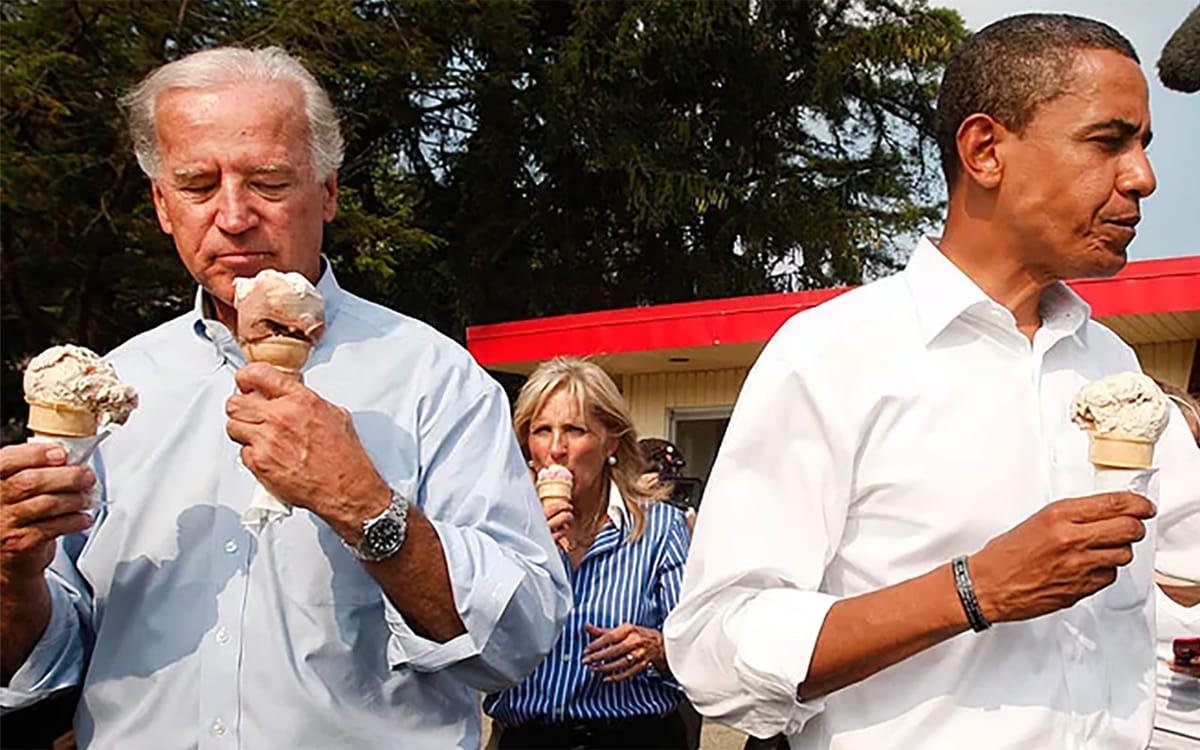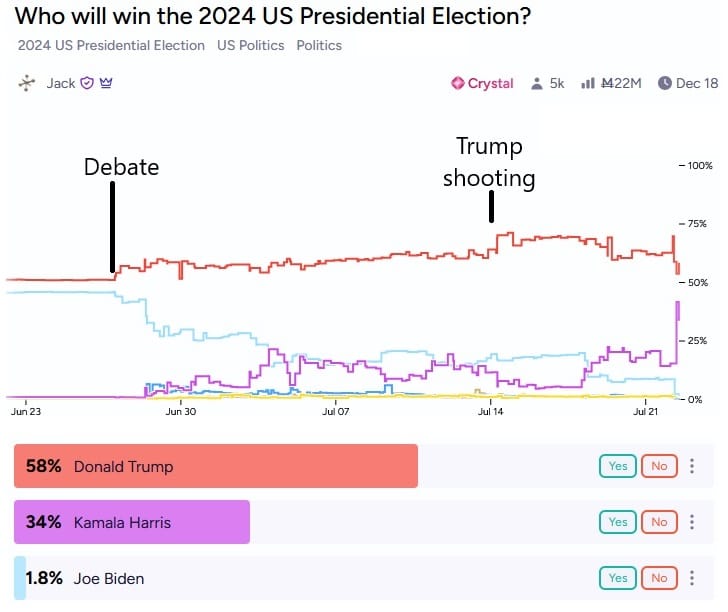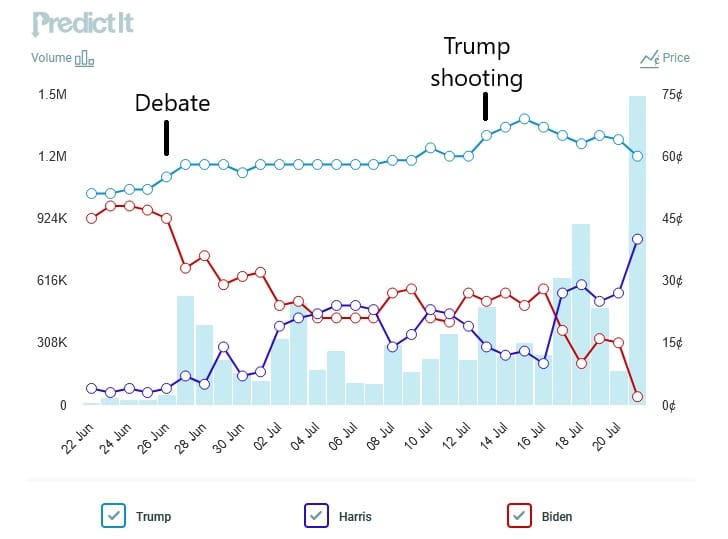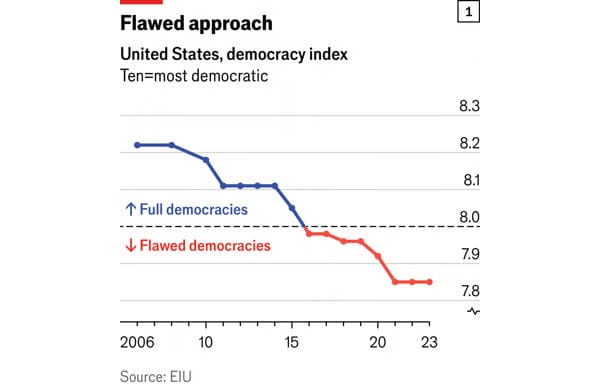Don't bet against betting markets
Betting markets may lean towards Trump over Harris, but the considerable uncertainty priced in reflects a fluid race - and one whose result could reshape the geopolitical landscape for Australia and its neighbours.

As everyone should now be aware, on Sunday Joe Biden stepped down as the Democratic candidate in November's US election – on National Ice Cream Day of all days! Crazy as it sounds, 2024 will be the first Presidential election since 1976 to not have a Biden, Bush, or Clinton on the ticket.
Biden's demise has been coming for weeks, but it really accelerated following that debate performance in late June. While the assassination attempt on Trump certainly gave the Republican nominee momentum, it didn't do anything to Biden's odds – betting markets already had him at just a 25% chance to win by the start of July.


No, Biden's demise was all about his declining cognitive ability and the fact that most Democrats, let alone all-important swing voters, considered him unfit to serve a second term.
With Biden gone, the focus now moves to the Democrats' heir apparent: Kamala Harris. Harris was endorsed by Biden in his resignation letter and many of the Democratic apparatchik, including Nancy Pelosi and would-be challengers such as Gavin Newsom, have fallen in line. Curiously, Harris has yet to receive the blessing of the all-important former President Barack Obama and some top donors, so we won't know for sure until the Democratic National Convention on 19 August.
Still, Harris has in-principle agreement from a majority of delegates and prediction markets have her at ~95% odds to secure the Democratic nomination, which is 10 percentage points above where Biden was prior to his calamitous debate performance. Barring a legitimate challenger putting their hand up between now and late August (and there are almost none left who had yet to endorse Harris), it's looking like it will be Harris vs Trump in November.
So with the candidates finally settled, what are their respective policies, and what might it all mean for Australia?
Democracy is safe
I'm going to start with what they have in common. First and foremost, I think the 'threats to Democracy' of a Trump 2.0 government are vastly overstated. The US might be a flawed democracy, but it still scores strongly on "political participation" and "free and fair elections".
Where the US falls down is on trust: people mistrust their elected officials, perceive them to be prone to corruption (there's a Nancy Pelosi stock tracker for goodness sake!), and think that most political figures "don't care" about "what people like me think".
A President isn't going to change those things in four years – many elected officials in the US are basically appointed for life – and even if they could, it's not clear that Trump 2.0 would do any worse at improving those than a Harris government. Institutions can of course decay, but four years isn't long enough to undo an established democracy like the US. Indeed, the last three and a half years of Biden/Harris has done nothing to address those problems, either.

To be clear, Trump 2.0 is more than capable of causing considerable economic and political damage, and the risk to democracy is certainly higher than it would be with Harris (not to detract from her ability to also leave the country in a considerably worse state!). But I don't think that we're going to be looking at a Xi Jinping-type situation of Trump seeking a third term four years from now; US institutions are strong enough to withstand any such attempts at dictatorship.
Where things get really interesting is in their policies.
